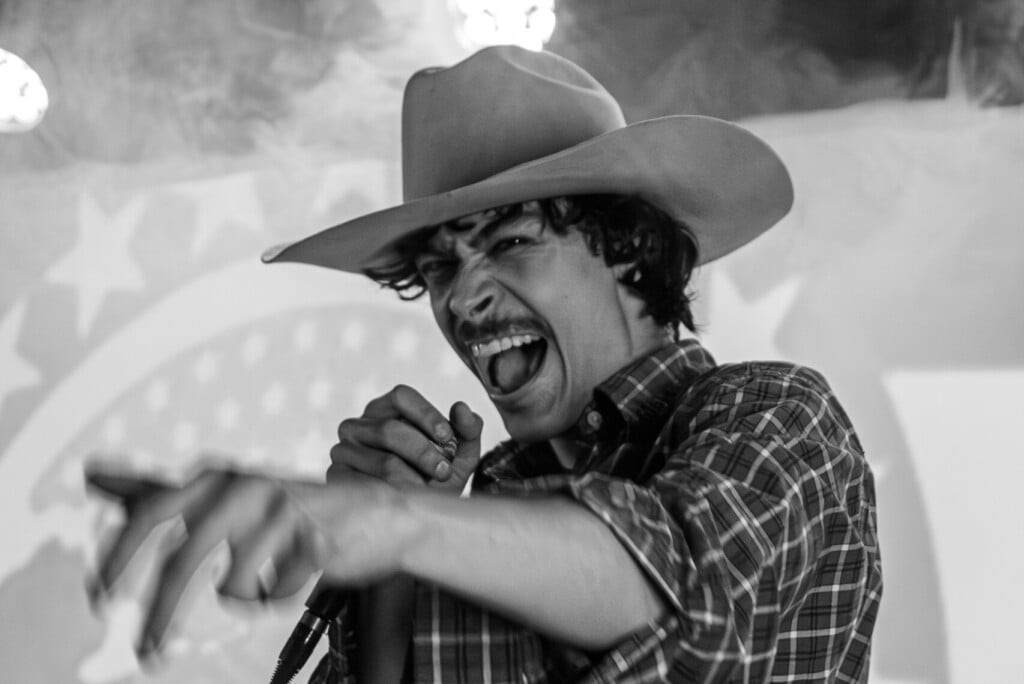Sharps and Flats

The more things change, the more they stay the same. So it goes — at least musically — with Akron, Ohio, residents Dan Auerbach and Patrick Carney, aka the Black Keys.
In 2002, the youthful duo released The Big Come Up, a self-produced, basement-recorded debut that featured fuzzed-out, fat-back guitar licks and drumming with much abandon. Yes, against all odds, the Black Keys provided Delta juke-joint translations that sounded like the real thing and received nearly universal praise for not sounding like two white guys in their 20s from Akron, Ohio.
In 2003, the fuzzed-out, fat-back guitar licks and drumming with much abandon continued on Thickfreakness, yet another self-produced, basement-recorded disc. And in 2004, the Keys traveled across town, taking up residence in Akron’s abandoned General Tire building, to record the self-produced and aptly titled Rubber Factory. The record was once again filled with fuzzed-out, fat-back guitar licks and drumming with much abandon that received nearly universal praise for not sounding like two white guys in their 20s from Akron, Ohio.
But in 2006, the pair returned to Carney’s parents’ basement to record Magic Potion, a self-produced assemblage fuzzed-out, fat-back guitar licks and drumming with much abandon that should receive nearly universal praise for not sounding like two white guys in their 20s from Akron, Ohio.
But it might not.
See, in years one through five of what, in hindsight, we can now call a career, the Black Keys were the perfect passengers for the indie-rock railroad, a transportation system that requires a unique underground underdog pedigree for each of its riders.
But when a group outgrows any of the above, the owners of the railroad — namely, indie-rock fans who see unique underground underdogs when they look in the mirror — will drop your ass like a bad habit.
And whereas the music, hometown and recording method of the Keys have not varied one iota, a few other things have — the band’s record label, publicist and management. So look out below, Beelzebub, because that indie-rock railroad can be a snarky, snarky thing.
“I feel less stressed out,” Keys drummer Carney says of his band’s recent changes, “because we have people handling a lot of shit that we don’t have to worry about that we used to have to worry about, like making sure our T-shirt orders are in, and shit is all being handled by our new manager and stuff. But at the same time, my brother still does all the T-shirt designs and whatever. So we’re just a little bit more organized, that’s all.
“I mean, everybody that we’ve worked with in the past and we work with now, you know, are all good dudes, and we wouldn’t work with them if we weren’t able to do what we’ve got to do,” Carney 7continues.
And what the pair has got to do is concentrate on producing fuzzed-out, fat-back guitar licks and drumming with much abandon.
“I’m superexcited for the record to come out,” Carney says, “but I’m really fucking nervous that people won’t like it. But that happens with every record. You know, it’s kind of like waiting for Christmas when you’re a kid. You know it’s going to happen and you’re excited that it’s going to happen, but you’re just wondering if you got, like, a video game or a McDonald’s gift certificate, which would probably, like, bum you out.”
Ah, the innocent anticipation of youth.
Did we mention that Magic Potion is more of the same? Eleven self-produced tracks of fuzzed-out, fat-back guitar licks and drumming with much abandon recorded in Carney’s parents’ basement? Oh, we did? All righty, then. But let’s worry about getting stuck in a rock-and-roll rut some other time.
Did we mention that two songs from the Keys’ last album are, even as we speak, helping hawk lingerie and cell phones? No? Oh. That’s because, according to the indie-rock railroad, that is not a good thing.
“We licensed songs to a Sony Ericsson cell phone commercial and a Victoria’s Secret commercial,” Carney says, “and there were people on our message boards kind of calling us sellouts, you know. But I’m sitting here thinking, We do everything out of our basement. If we wanted to sell out, we could’ve sold out, probably, by now. We wouldn’t be recording in the basement if we were trying to sell out.
“Our songs don’t even get played on the radio, [so] why not take some money?” Carney continues. “In exchange for lots of people hearing your music, you’re going to get paid for it. I mean, it wasn’t too long ago that I was making, like, $550 a month, so when somebody offers you, like, you know, $10,000 to put a song in a commercial, to me it still feels like basically two years of pay. You’d have to be fucking nuts not to do it.”
So at least the indie-rock backlash, that forced disembarkation from the indie-rock railroad — if it happens — will not catch the band unaware.
“I knew that somebody would have a problem,” Carney says. “I wasn’t worried. I was just waiting for it to happen so I could get annoyed because, you know, it is our job.
“As far as the whole indie thing goes,” Carney adds, “if somebody just didn’t like the record, it’s fine. That’s what people get paid to do — express their opinion. But I do think if there was some sort of weird indie backlash, which I don’t think would happen, but if it did happen, I would call any motherfucker out on that.”
He laughs. Despite some powerful drumming with much abandon, Carney possesses a lithe body that could be mistaken for a basketball goal post, and the scrappy skin-hitter maintains that the Black Keys are just keeping it real.
“If you’re a band and you take a political view and say you’re not a sellout, you’re going to set yourself up to be a hypocrite,” he says. “But all Dan and I have ever committed to is making music that we like to make and doing it honestly. That’s more than most bands can say, I think.”




